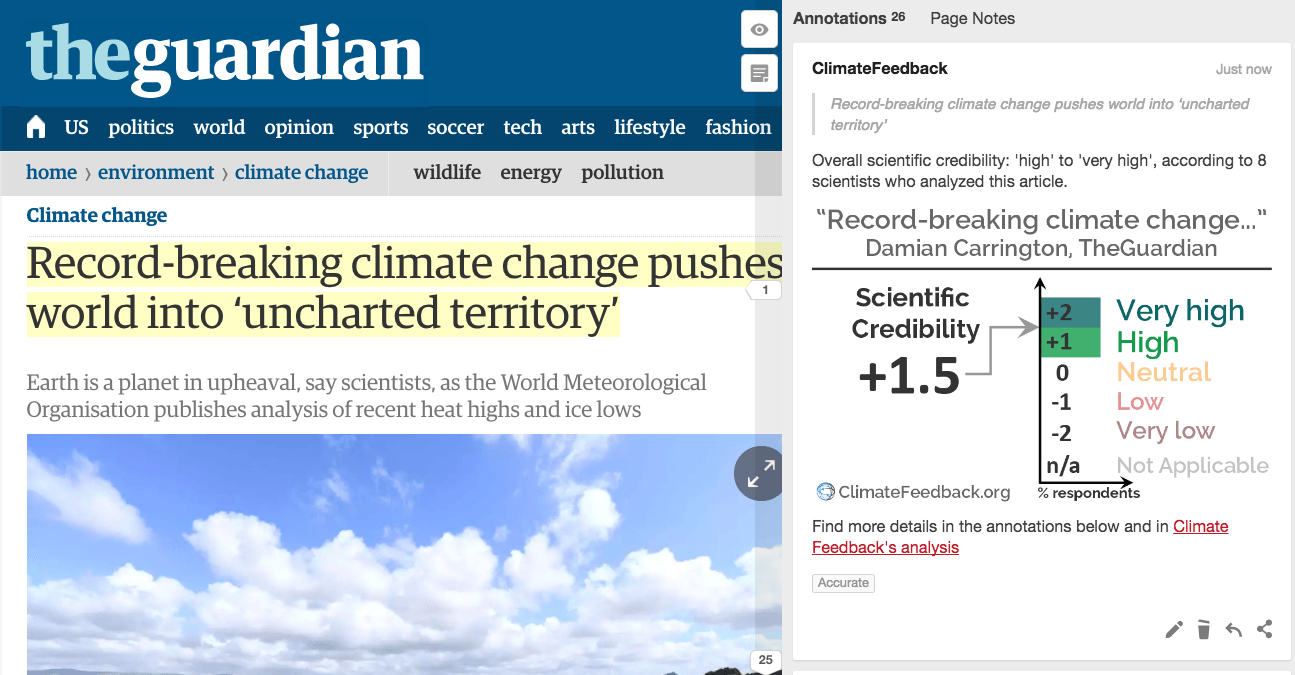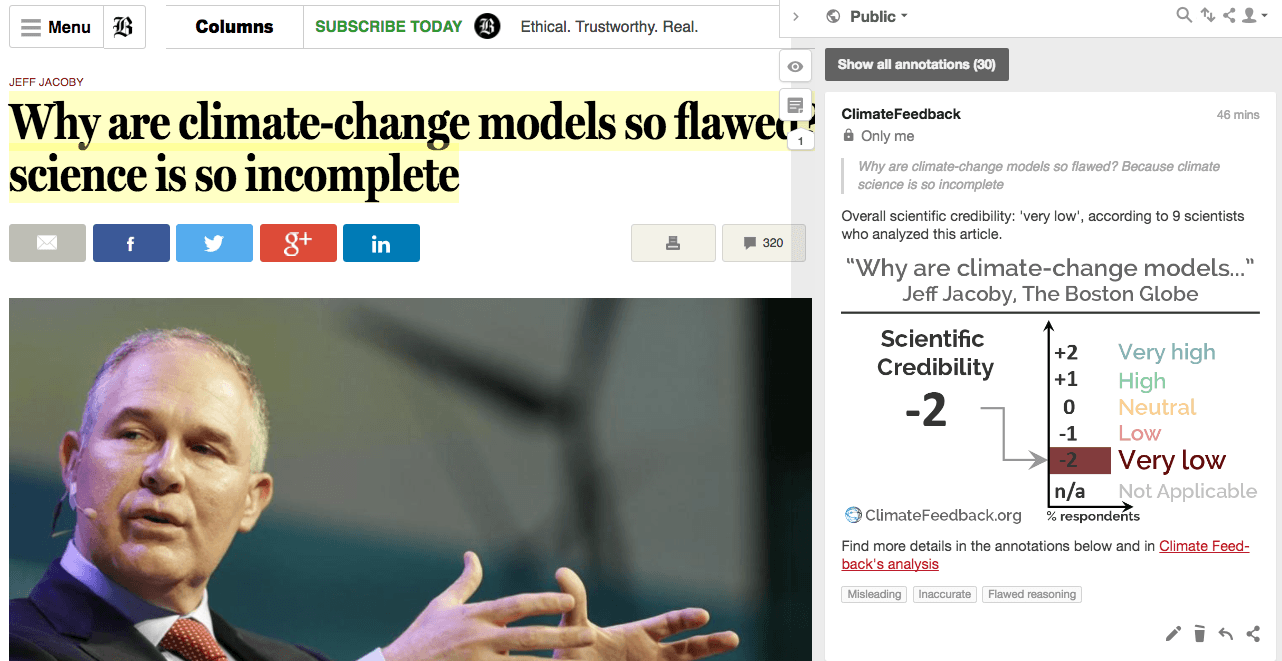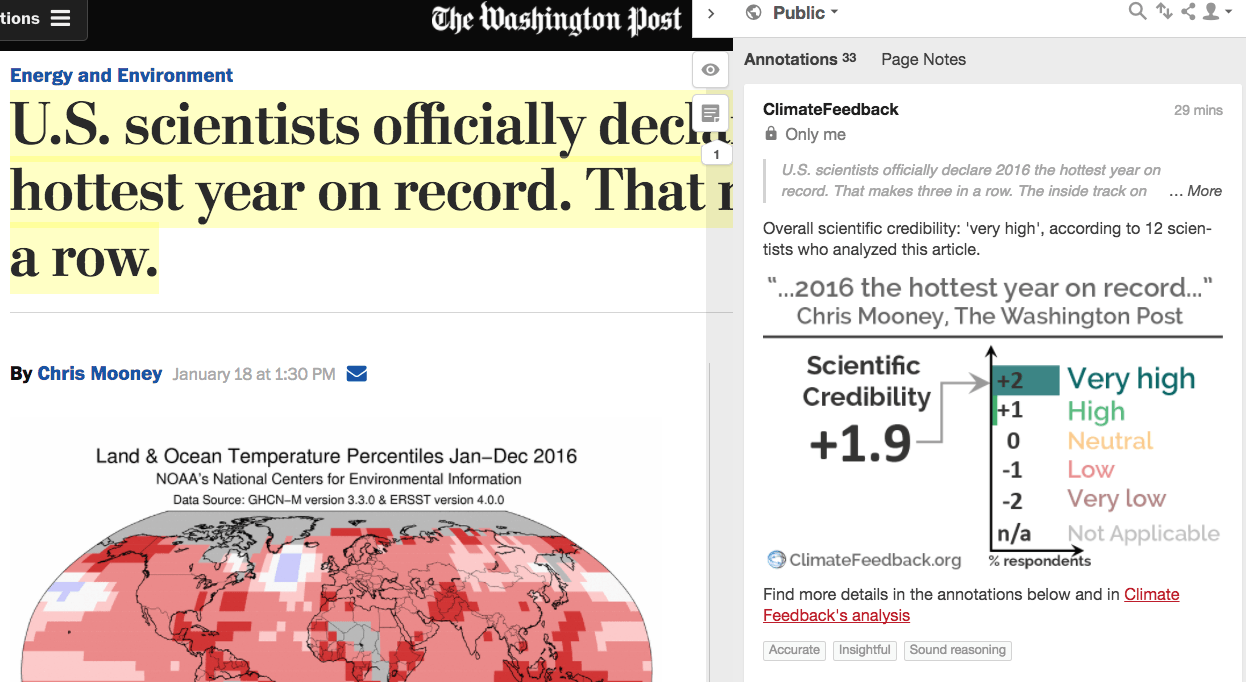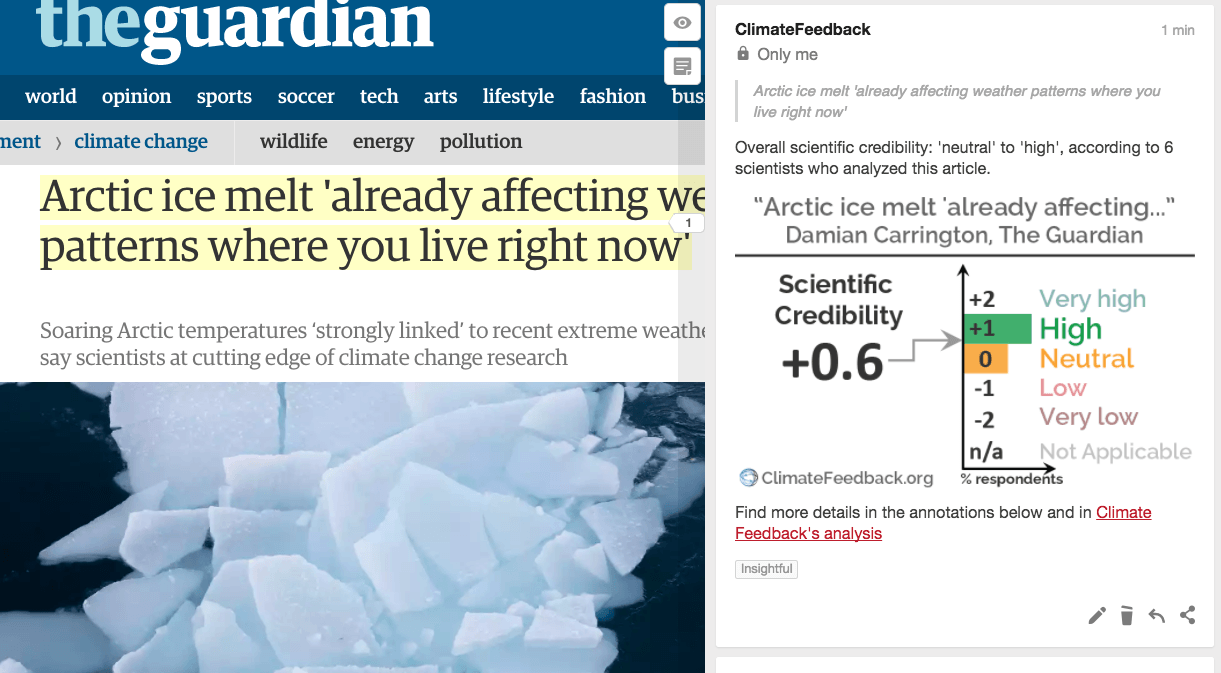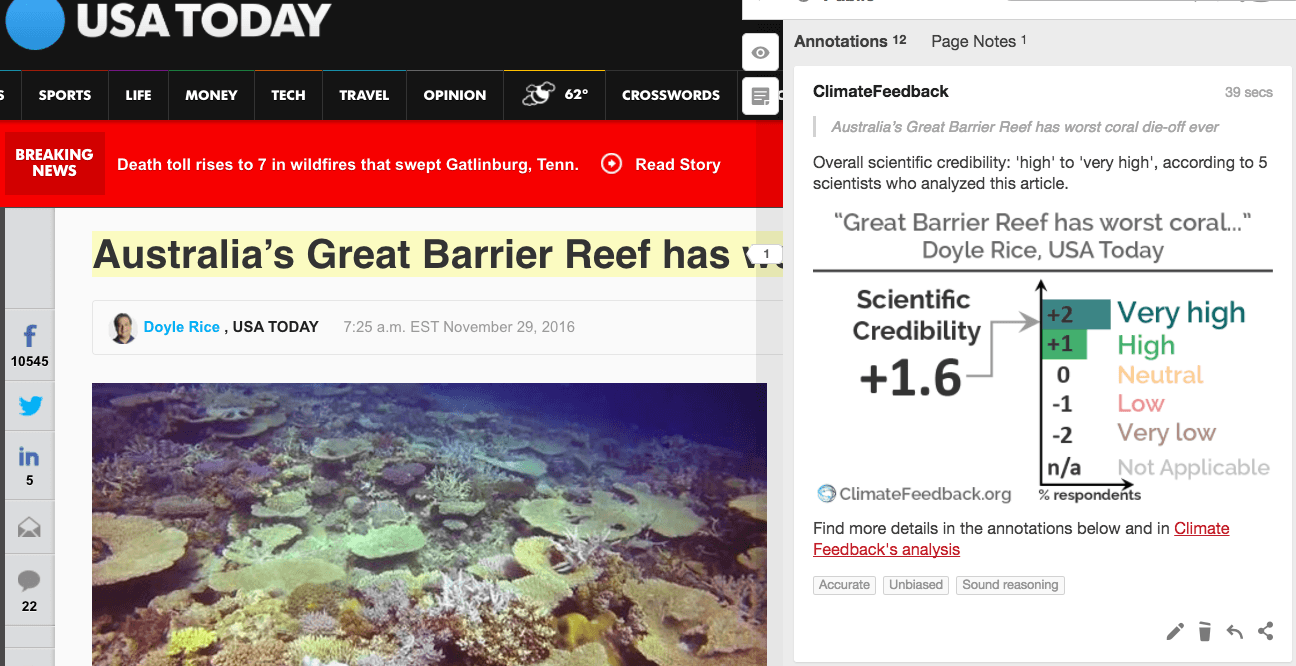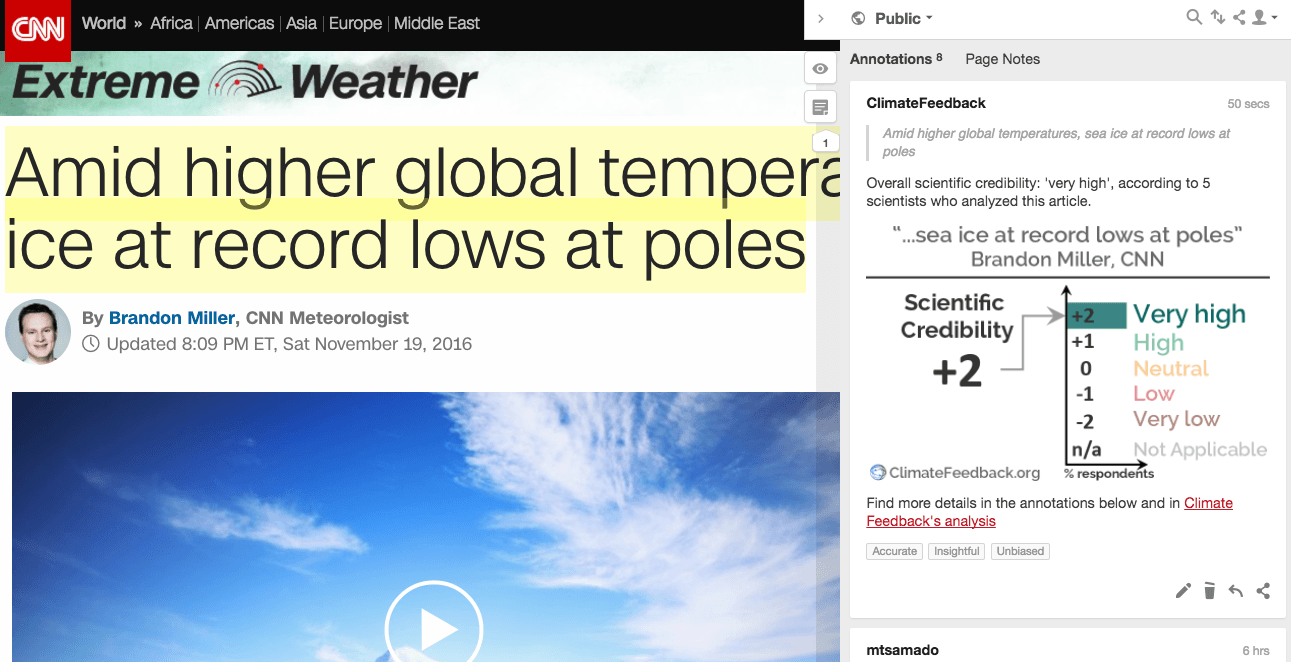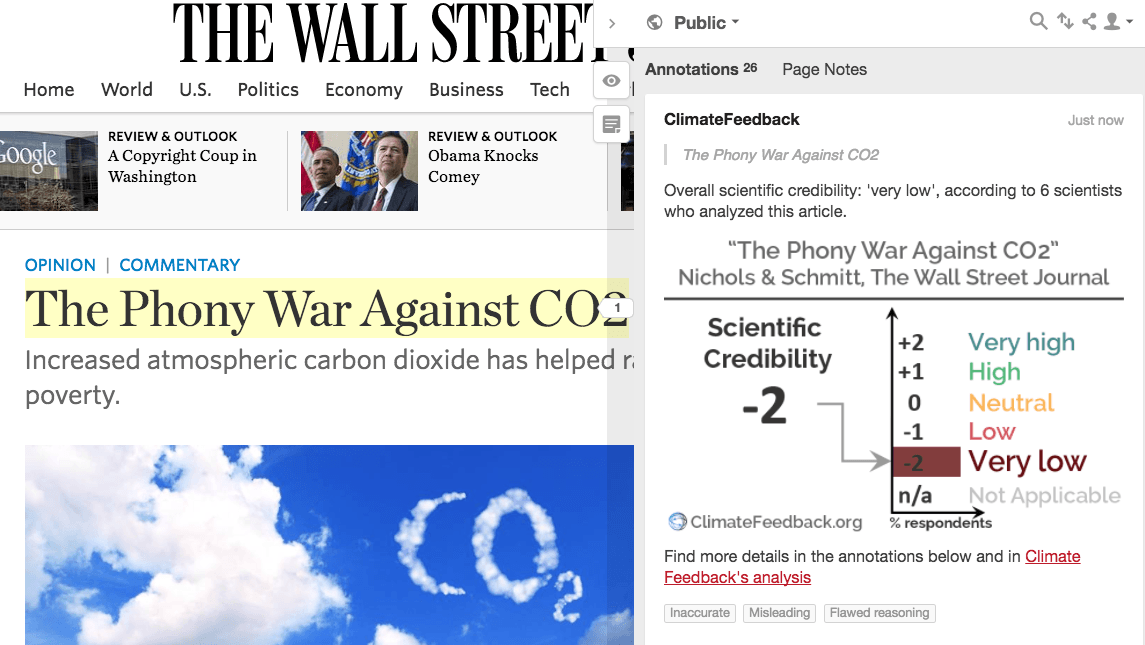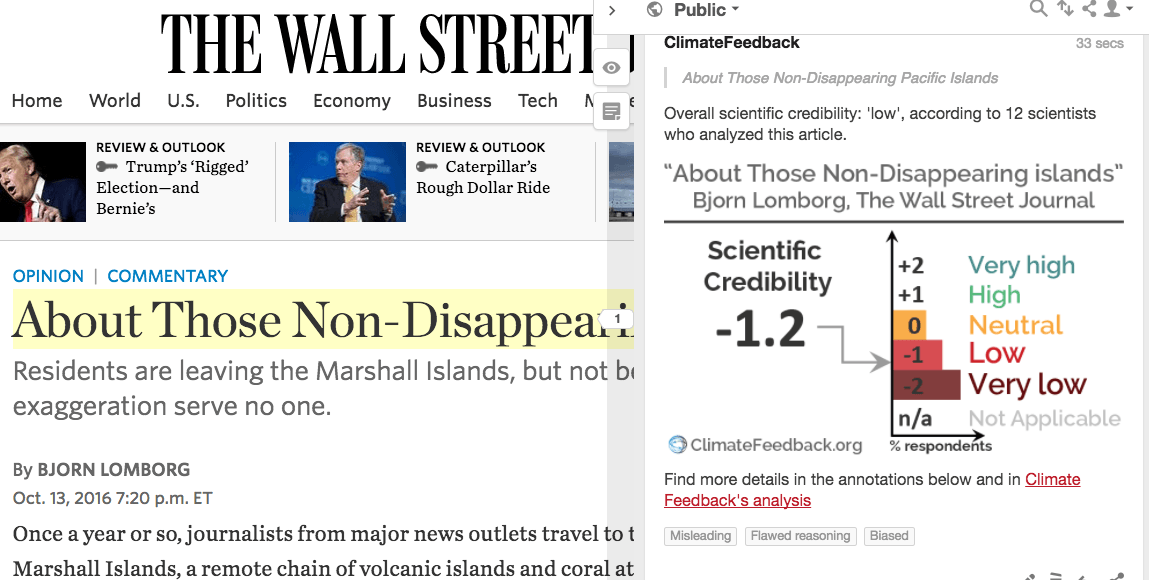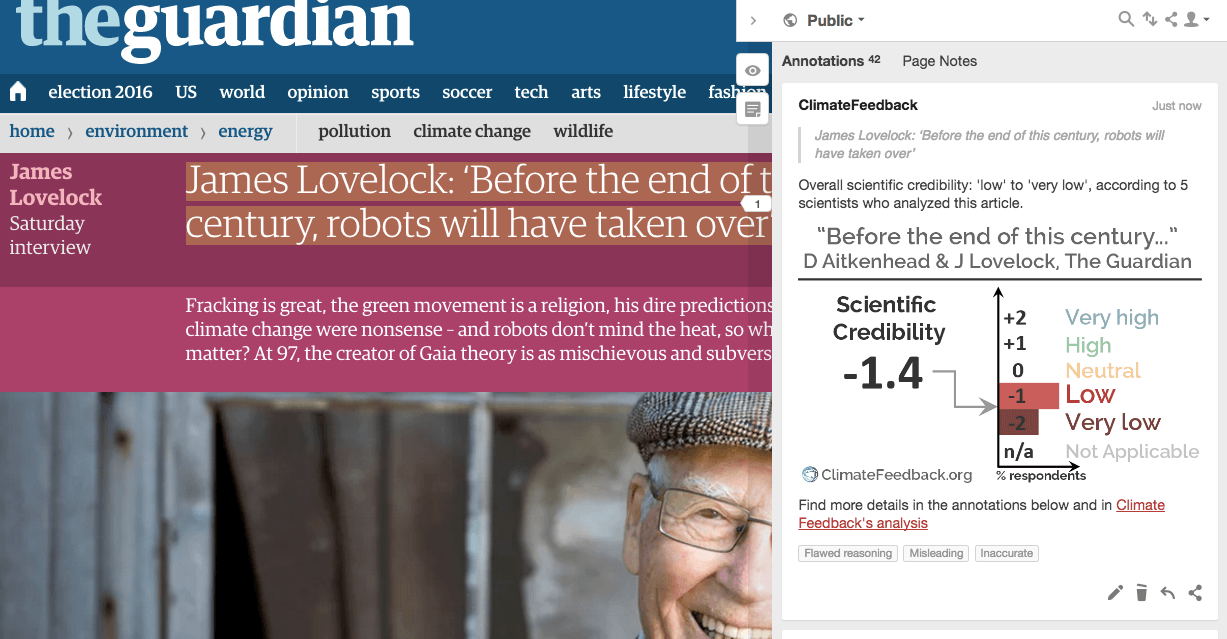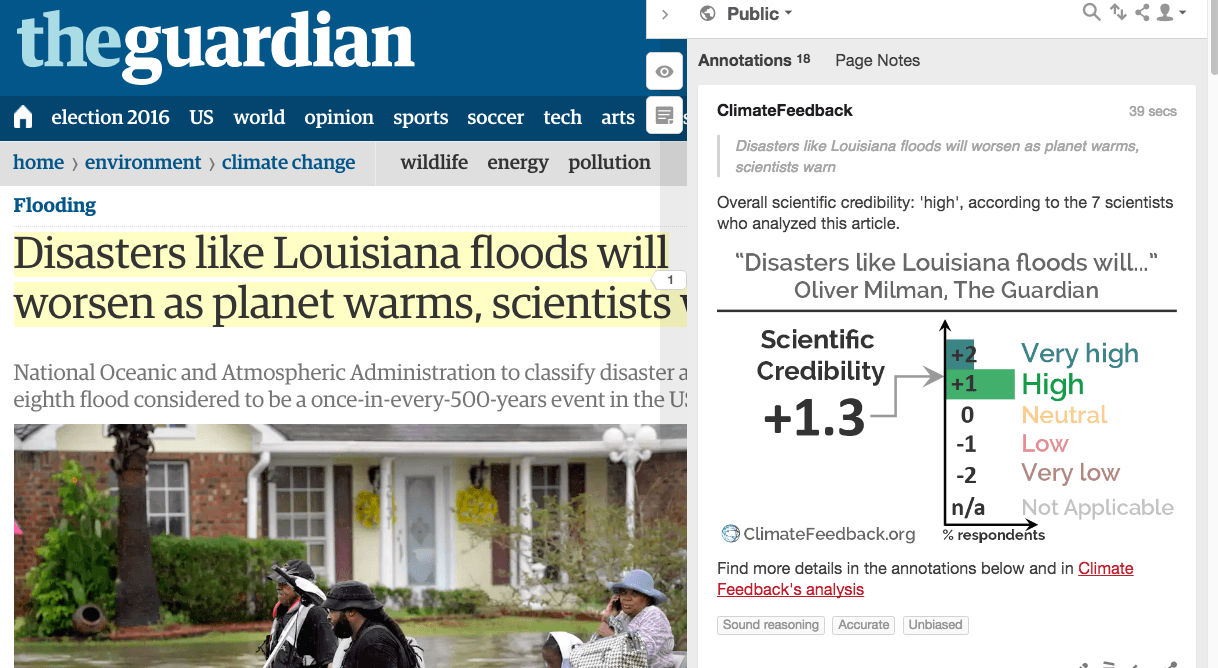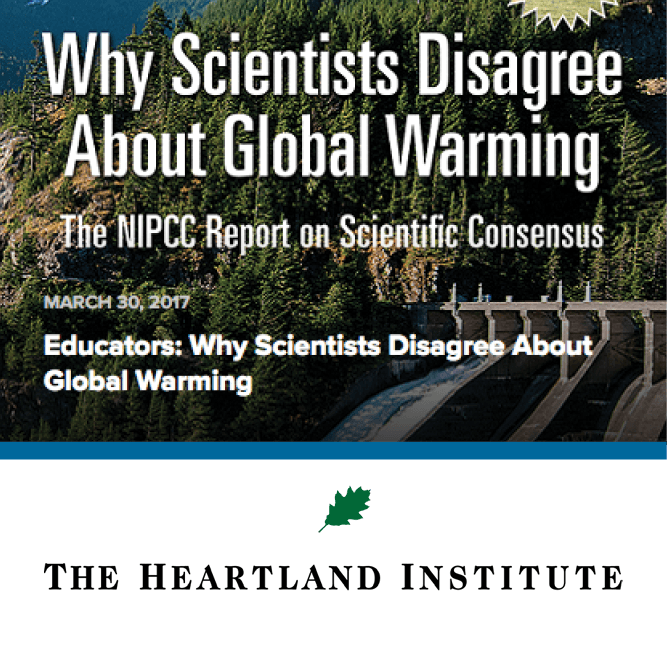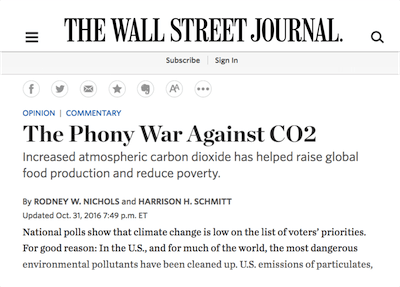.
James Renwick
Professor, Victoria University of Wellington
Expertise: Large-scale climate variability, Antarctic climate
Details:
![]() Hypothesis handle: JamesRenwick
Hypothesis handle: JamesRenwick
Qualifying publication(s): see criteria
ARTICLES REVIEWED
Analysis of “Record-breaking climate change pushes world into ‘uncharted territory’”
in The Guardian, by Damian Carrington
— 22 Mar 2017
Analysis of “Why are climate-change models so flawed? Because climate science is so incomplete”
in The Boston Globe, by Jeff Jacoby
— 16 Mar 2017
Analysis of “U.S. scientists officially declare 2016 the hottest year on record. That makes three in a row.”
in The Washington Post, by Chris Mooney
— 19 Jan 2017
Analysis of “Arctic ice melt ‘already affecting weather patterns where you live right now'”
in The Guardian, by Damian Carrington
— 21 Dec 2016
Analysis of “Australia’s Great Barrier Reef has worst coral die-off ever”
in USA Today, by Doyle Rice
— 30 Nov 2016
Analysis of “Amid higher global temperatures, sea ice at record lows at poles”
in CNN, by Brandon Miller
— 24 Nov 2016
Analysis of “The Phony War Against CO2”
in The Wall Street Journal, by Rodney Nichols and Harrison Schmitt
— 03 Nov 2016
Analysis of “About Those Non-Disappearing Pacific Islands”
in The Wall Street Journal, by Bjorn Lomborg
— 17 Oct 2016
Analysis of “James Lovelock: ‘Before the end of this century, robots will have taken over’”
in The Guardian, by Decca Aitkenhead & James Lovelock
— 07 Oct 2016
Analysis of “Disasters like Louisiana floods will worsen as planet warms, scientists warn”
in The Guardian, by Oliver Milman
— 18 Aug 2016
CLAIMS REVIEWED
Carbon dioxide emissions by humans are the major driver of modern climate change, contrary to Jerome Corsi’s claims in CBN News video
SOURCE: Jerome Corsi, CBN News
Published: 05 Aug 2022

Climate scientists agree that human-caused greenhouse gas emissions are primarily responsible for climate change, contrary to claims in Clear Energy Alliance video
SOURCE: Mark Mathis, Clear Energy Alliance
Published: 25 Jun 2020

Global warming has not “ceased”, as Heartland Institute report falsely claims
SOURCE: Craig Idso, Robert Carter, S. Fred Singer, Heartland Institute
Published: 29 May 2017

Climate sensitivity estimate given in Heartland Institute’s report is misleading
SOURCE: Craig Idso, Robert Carter and S. Fred Singer, Heartland Institute
Published: 02 May 2017

Wall Street Journal op-ed ignores evidence of negative impacts of increasing CO2
SOURCE: Harrison Schmitt & Rodney Nichols, The Wall Street Journal
Published: 02 Nov 2016


